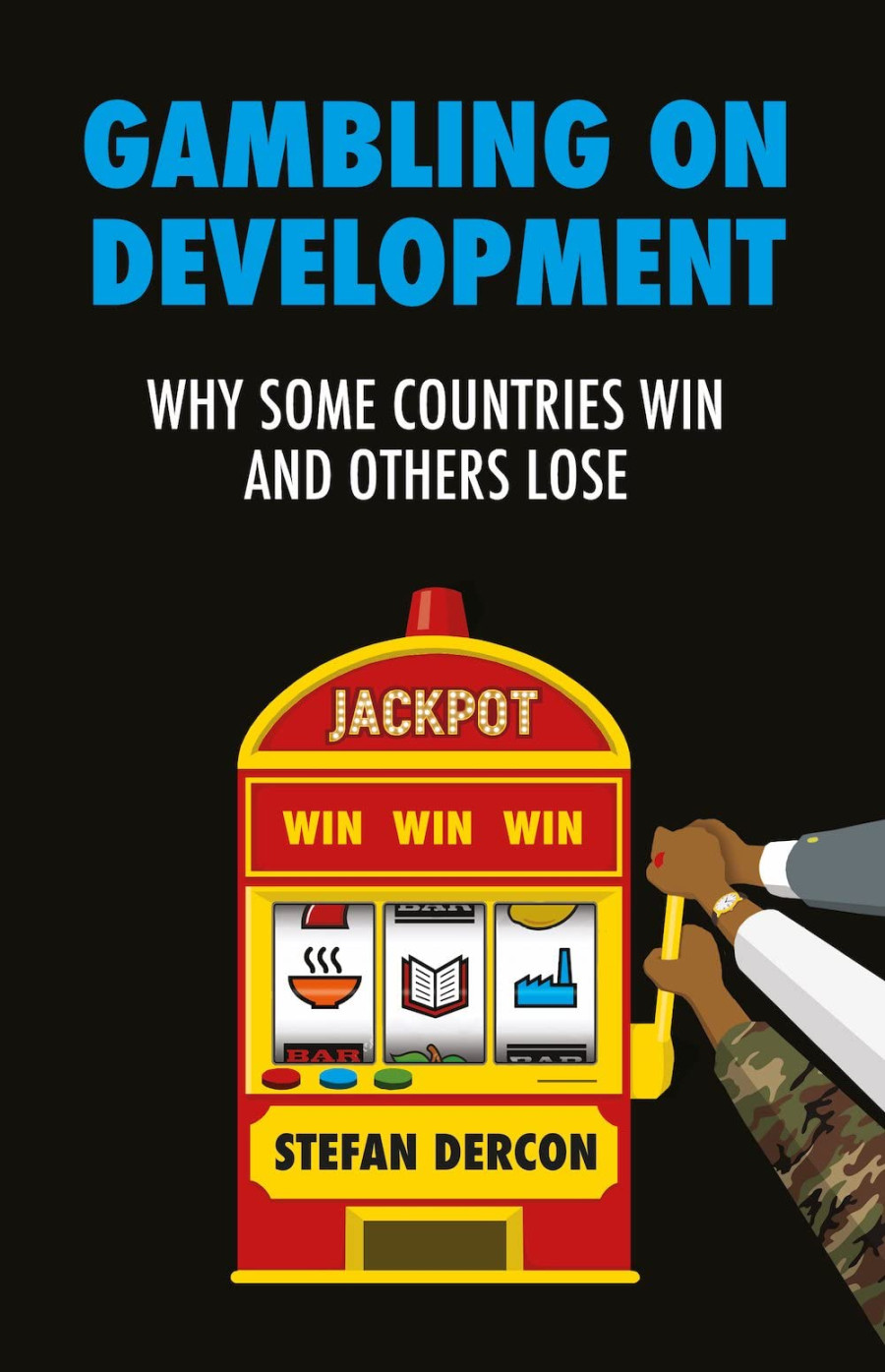Culture & Lifestyle
‘Gambling on Development: Why Some Countries Win and Others Lose’ is clear-eyed about the political nature of development
The central thesis of Stefan Dercon’s book is development happens only when it is in the interest of those in power to pursue economic growth rather than to seek rent.
Dhiraj Sharma
In the rich intellectual tradition of exploring why some countries are rich while others are not, comes a new book by Stefan Dercon, a professor at the University of Oxford and former chief economist at the UK Department of International Development (DfID). The central thesis of Dercon’s book ‘Gambling on Development: Why Some Countries Win and Others Lose’ is that development only happens when it is in the interest of those in power to pursue economic growth rather than to seek rent. Put simply, the elite must feel it is in their interest to enlarge the proverbial pie rather than stealing a bigger slice of the smaller pie.
Why may the elite gamble on growth, risking their own hold on wealth and power? Dercon lists four main reasons: enlightened leaders, emergence from conflict or other major social disruption, a quest for political legitimacy, or the foresight that growth yields better personal and political rewards. Singapore’s Lee Kuan Yew and China’s Deng Xiaoping are often cited as examples of visionary leaders who led their countries into modernity. Rwanda and Ethiopia transitioned to a different development model after brutal civil wars in the 1990s. Indonesia’s Suharto grabbed power in a military coup but needed to legitimise his regime by focusing on development. Indian reformers who favoured a more liberal, market-oriented economy pushed for more reforms once the benefits of reform became clearer.
Dercon’s book is refreshingly clear-eyed about the political nature of development. Too often, academic discourse on economic growth abstracts away from the distribution of economic and political power, including how a change in one may shift the other. The elite may resist growth because it may loosen their grip on wealth and power. From this perspective, what to outsiders seems like a maddeningly obvious policy misstep may be a rational choice by the political elite to maintain their grip over means and influence.
The book avoids the unsatisfactory extremes of some of its recent predecessors. It assigns foreign aid its due role in supporting reformers, tilting the balance toward a better elite bargain. In doing so, it avoids giving aid undue importance like ‘The End of Poverty’ does or writing it off as its trenchant critics do in ‘Dead Aid’ and ‘The White Man’s Burden’. The book acknowledges the lasting impact of history, but it avoids what appears to be the fatalistic prognosis of bad institutions presented in ‘Why Nations Fail’. It highlights the role of learning and course correction but views it as a deeply political process rather than a clean, clinical one as advanced by ‘Poor Economics’.
What about the elite bargain in Nepal? Dercon succinctly describes the elite bargain that emerged from Nepal’s peace process:
“In the end, whether by design or by implication, the economic structures did not change fundamentally. What has changed is a stronger focus on development in the poor rural areas… creating not only both more local patronage and corruption but also a gradual change in living conditions…The economic deal that was chosen retained much of what was there by way of structures and how the elite could enrich themselves, but the distributive agenda was more inclusive.”
A few recent headlines and ledes from the Nepali press illustrate the elite bargain prevalent in Nepal:
Finance Minister Sharma resigns
Finance Minister Janardan Sharma resigned on Wednesday after public outcry and widespread criticism following charges that he had employed two unauthorised persons to tweak tax rates on May 28, a day before he presented the budget for the next fiscal year. – The Kathmandu Post, July 6, 2022
Tax exemption on sanitary pads introduced to benefit Prime Minister’s son
It has been suspected that former finance minister Janardan Sharma gave customs duty exemption on the import of sanitary pads so as to benefit Jaiveer Singh Deuba’s company. Jaiveer Singh is the son of Prime Minister Sher Bahadur Deuba. – myRepublica, July 8, 2022
Massive corruption at play as govt expedites arms procurement worth millions of rupees for Nepal Police
The government has expedited the process to procure small arms for Nepal Police from an Italian company, Beretta, at a price four times more than the actual unit price. – myRepublica, July 11, 2022
These are but a few prominent stories that rose above the din to capture national attention. There must be many similar stories of corruption that are unreported or unnoticed. This is hardly indicative of a state intent on development.
Besides the reasons cited by Dercon on why a development bargain may emerge, I would also like to believe in the romantic notion that, in due time, societies reach an inflexion point where there is an awakening of national consciousness. There arises among the leaders a desire to leave a legacy, to put aside their differences for the greater good. At the same time, there arises in the people a desire for a full claim to their dignity and sovereignty. The country and its people suddenly comport as if their time has come, as if it’s their turn on the global stage. I sense this attitude when I meet upwardly mobile middle-class citizens of rising countries such as Ethiopia or Kenya. Sadly, I do not see such a renaissance in Nepal.
There are some hopeful signs, though. The election of independent candidates like Balen Shah in Kathmandu and Harka Sampang in Dharan in the recent local elections has demonstrated that Nepali voters are not beholden to a party, that they can be peeled away from the legacy parties by populist outsiders running on a platform of transparency, accountability, and service delivery. Although the hope rests on a few high-profile examples in urban centres with well-off, educated voters, political entrepreneurs of all stripes have sensed an opportunity to woo voters away from the legacy parties. This is evidenced by the early entry of a raft of independent candidates in the next general election. Traditional parties better take heed. Soon, it may take more than appealing to their role as vanguards of democratic movements and revolutions of previous decades for a rightful claim to power. Ultimately, it is up to the voters to make an independent, dispassionate choice, unburdened by past loyalties, to elect the best candidate who will make good on the promise of delivering prosperity to the masses.




 9.7°C Kathmandu
9.7°C Kathmandu

.jpg&w=200&height=120)













